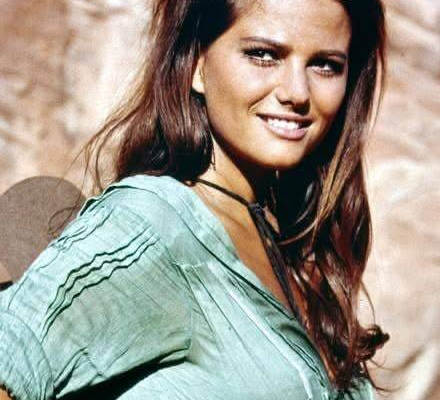Claudia Cardinale: A Life of Resilience, Talent, and Defiance

Claudia Cardinale’s career spans more than six decades, cementing her as one of the most admired figures in Italian and international cinema. Known for her striking beauty, expressive performances, and an aura that blended vulnerability with strength, Cardinale built a legacy that extends far beyond her screen roles. Her journey was not without hardship, but it is precisely her ability to navigate both triumph and tragedy that makes her story so remarkable.
Born in Tunis, Tunisia, in 1938 to Sicilian parents, Cardinale grew up in a multilingual environment, speaking Arabic, French, and Italian. At just 18, her life changed dramatically when she won the title of Most Beautiful Italian Girl in Tunisia, a contest that promised the winner a trip to the Venice Film Festival. This victory opened the door to her first film roles and introduced her to the world of cinema, though she had not initially sought a career in acting. In fact, Cardinale had once dreamed of becoming a teacher. Fate, however, had other plans.
Behind the glittering lights of stardom, her early life was marked by deep personal tragedy. At 18, she became pregnant after a violent assault, a fact she kept hidden for many years. In a conservative era, the pressures of secrecy weighed heavily on her. She raised her son in private, carefully guarding his identity even as her fame grew across Europe. This painful chapter of her life revealed a theme that would follow her throughout her career: the constant negotiation between personal freedom and public image.
Her marriage to influential producer Franco Cristaldi added further complexity. Cristaldi exerted near-total control over her professional and personal life. He managed her contracts, dictated which roles she could accept, and even shaped how she appeared in public. Cardinale often described these years as suffocating. While she starred in some of her most iconic films during this period, she privately struggled with depression and isolation. By 1975, she found the strength to leave Cristaldi, reclaiming ownership of her life and career.
Despite these personal challenges, Cardinale’s body of work speaks to her remarkable artistry. She collaborated with some of the greatest directors of her era, including Luchino Visconti, Federico Fellini, and Sergio Leone. Her performances in films such as Rocco and His Brothers (1960), 8½ (1963), The Leopard (1963), The Pink Panther(1963), and Once Upon a Time in the West (1968) solidified her reputation as one of the most versatile actresses of her generation. On screen, she exuded elegance and emotional intensity, whether portraying aristocrats, romantic heroines, or complex, defiant women.
Often compared to Brigitte Bardot for her beauty and allure, Cardinale deliberately carved her own path. She refused to appear nude on screen, stating that she believed in the power of suggestion over exposure. This decision set her apart in an industry that often sought to commodify women’s bodies, and it reinforced her reputation as an actress who valued artistic integrity over sensationalism. Similarly, while Hollywood courted her, Cardinale resisted fully embracing its system, preferring to maintain independence and authenticity rather than sacrifice her creative freedom for wealth or global fame.
In her later years, Cardinale built a long partnership with director Pasquale Squitieri, with whom she shared her life until his passing in 2017. Together, they had a daughter, further expanding the family she had once struggled to protect in secret. She has spoken openly about finding peace and balance in her personal life during these years, even as she continued to work on stage and screen.
Now 86, Claudia Cardinale resides in France and remains in good health. Far from retiring into obscurity, she has embraced activism, serving as a UNESCO goodwill ambassador for women’s rights. Through this work, she advocates for gender equality and the empowerment of women worldwide—causes that resonate deeply with her own life story of resilience and independence.
From the streets of Tunis to the red carpets of Cannes, from personal struggles to professional triumphs, Claudia Cardinale’s life has been defined by courage and authenticity. Her legacy is not just that of a celebrated actress, but of a woman who continually defied expectations, chose dignity over compromise, and transformed pain into power. For new generations of actors and audiences, her journey remains an enduring source of inspiration—proof that true artistry is inseparable from the strength of the person behind it.


